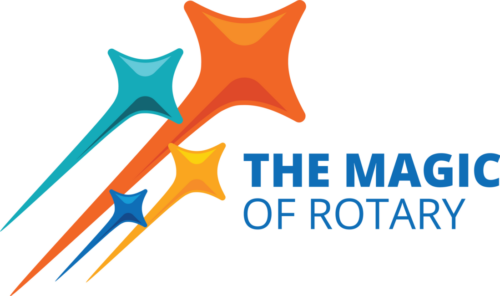Damrong Kraikruan, Consul Generalof Thailand in Los Angeles since July of 2009 concentrated his talk on “democracy”
in Thailand. Mr. Kraikruan has beenMinister/Deputy Chief of Mission of the Royal Thai Embassy in Washington D.C.,
as Charge’d’Affaires. Most of his foreign service has involved Southeast Asian regional affairs. He was Director of East Asia Division I (Maritime
Southeast Asian and Myanmar), Head of the Security Task Force of the Thai Foreign Ministry and has been in Royal Thai Embassies in Manila, and Berlin. He is a graduate of Thammasat University with a BA in History and a Graduate Certificate in Diplomacy from Oxford University. He is married and has two children. And, he is a Rotarian.
Thailand is a Constitutional Monarchy, i.e. even though it is a democracy, and people vote to elect their government, the country has a king. The king serves as head of state and a
premier serves as head of the government. The premier and the members of a Cabinet make the government’s policies and carry out the operations of the government.
The king has an advisory role in the government; he can select his successor and the successor is selected by a Privy Council.
There are not a lot of democracies in Asia, but Thailand is one of them. It is the only country in Southeast Asia that has never been ruled by a European country. It took on the status of a democracy in 1932 after a Western-educated Thai led a revolt against the then king. Since the creation of the parliamentary democracy, there have been 24 elections involving a multitude of parties, which were started before World War II. He described the country as a “Robust civil society” that has many independent agencies which work with government to
facilitate government operations. There are 16 national newspapers in the country and 100s of local newspapers. There is Free Speech, with the exception that
the King cannot be criticized. Because of Freedom of Speech in Thailand, Bangkok is a popular home of the Asian press.
Its democracy provides for elections of officials at the lowest level of government on up. Thai people enjoy the political process. Its modernization is evidenced by the country having a woman Prime Minister, which is unusual for Asia for women to hold such as office.
Not all has been placid in Thailand. There have been military revolts, political unrest, crime problems in the countryside, Muslim hostility in the South and
Hill Tribes, who complain they are underprivileged. However, the government has been working to raise their standard of living.
Notwithstanding these problems, Thailand is committed to fostering democracy through education and access to information. Independent agencies are becoming more and
more important. There are three independent branches of the government: the parliament, the courts and the administration, with democracy
flourishing. So Democracy is thriving.

 Teri Muse Walk-a-Thon for mental health awareness
Teri Muse Walk-a-Thon for mental health awareness  10th Anniversary of The Field of Honor
10th Anniversary of The Field of Honor  Arcadia Rotary’s Installation of it’s 98th President
Arcadia Rotary’s Installation of it’s 98th President  Let’s Recap! 6/21/24
Let’s Recap! 6/21/24